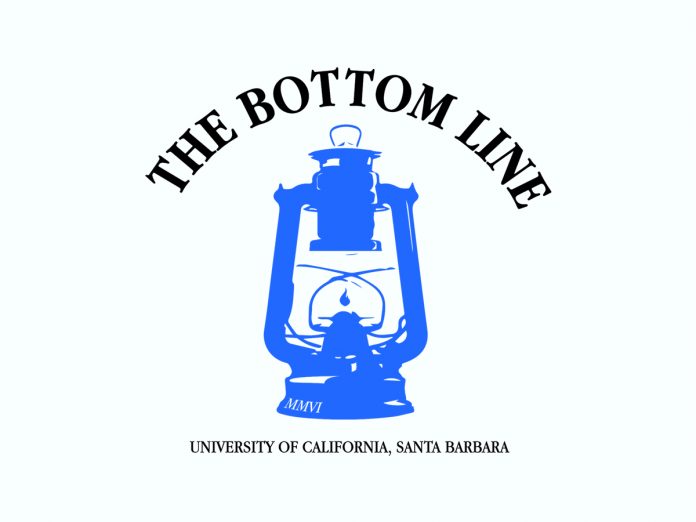Xander Apicella
Science and Tech Editor
On Friday, Apr. 19, George Degen — a chemical engineering grad student at UCSB — won the seventh annual Grad Slam for his research on powerful glues derived from mussel biology.
Every UC has their own Grad Slam, but UCSB had the first. They are competitions between grad students to take their research and compress it into brief presentations, comprehensible to the layperson. Degen was the champion, with 80 others competing and an eventual eight other finalists. He thought his presentation dominated because of its familiarity.
“I think that people can easily identify with the challenge of making things stick in wet conditions — like applying a bandaid to wet skin,” Degen said in an email interview with The Bottom Line. “People here … see mussels all the time … they are excited to learn that this common creature could be the inspiration for important technologies.”
The common problem, combined with people’s prior knowledge of the creature Degen researched, allowed them to connect and be engaged by his talk from the start. Various other presentations vied for the top spot, and Degen was always excited to go and talk to the other graduate students about their research between presentations. The type of cross-disciplinary discussion inherent to the event is what got him excited about coming to UCSB in the first place.
“I liked the collaborative research environment, both within my department … and across departments,” Degen said. “I think there is an unusually strong emphasis on collaboration and sharing of ideas here.”
Degen’s early research in the lab of Professor Israelachvili (who recently passed away), focused on adhesion between surfaces. Sticking with his expertise, he went on to study the glue-like secretions of mussels.
Various research groups, Degen said, are doing this sort of research. The end goal for these projects is the development of glues capable of sticking, regardless of conditions. Such glues could have powerful applications in the medical and dental fields, where surfaces are often too slick or irregular for current methods of adhesion to function.
Methods like stitches are a potential solution, for certain injuries, but stitches are invasive and unsightly. These glues would be able to seal people back up with biological materials, so they could heal with fewer complications and a cleaner procedure.
This aligns with the recent push by the Materials Research Laboratory (MRL) to seek out applications for unique biological materials — with an emphasis on those of sea creatures.
Mussel is the colloquial name given to several species of the bivalve molluscs (phylum mollusca; class bivalvia). Degen’s research focuses marine mussels and on one particular of their anatomy — their byssus, or foot. The byssus creates a viscous gel that solidifies on contact with the water to form byssal threads.
These threads are used to anchor mussels to rocks in the tidal pools and rock outcrops they inhabit, allowing them to brave thrashing waves and slippery footing without losing their grip. The glue produced for these threads — a fast-forming substance that can provide such stability — is the topic of Degen’s research.
He aims to find what component of these glues cause the powerful adhesion the byssal threads display. His studies focus on the most basic demonstration of their abilities by measuring the adhesive force between two surfaces in various experiments.
His research has lead him to partnerships with other research groups at UCSB, including that of Professor Herb Waite (who studies wet-surface adhesion in the Department of Molecular, Cellular, and Developmental Biology) and that of Professor Alison Butler (who studies, among various other projects, bio-inspired wet-adhesion materials in the Department of Chemistry and Biochemistry).
The Grad Slams are the products of the collaborative mindset displayed by these groups, as well as various other research endeavors at UCSB. They provide the ability for those interested in research — from either academic or layperson standpoints — to learn from and appreciate the work being done in a variety of fields. Their proficiency in this arena is because of their accessible nature and ability to generate excitement.
“They’re fun,” Degen said. “They … give people from every discipline exposure to all the other research areas at UCSB.”
The exposure events like the Grad Slam give to the research and efforts of grad students focus them on the importance of communicating their work to all audiences. The repetition of this event, as years go by, will bring information, and the possibility of inspiration, to academics throughout the UC system.











